Mercedes opens Alabama battery plant, adding up to 600 jobs
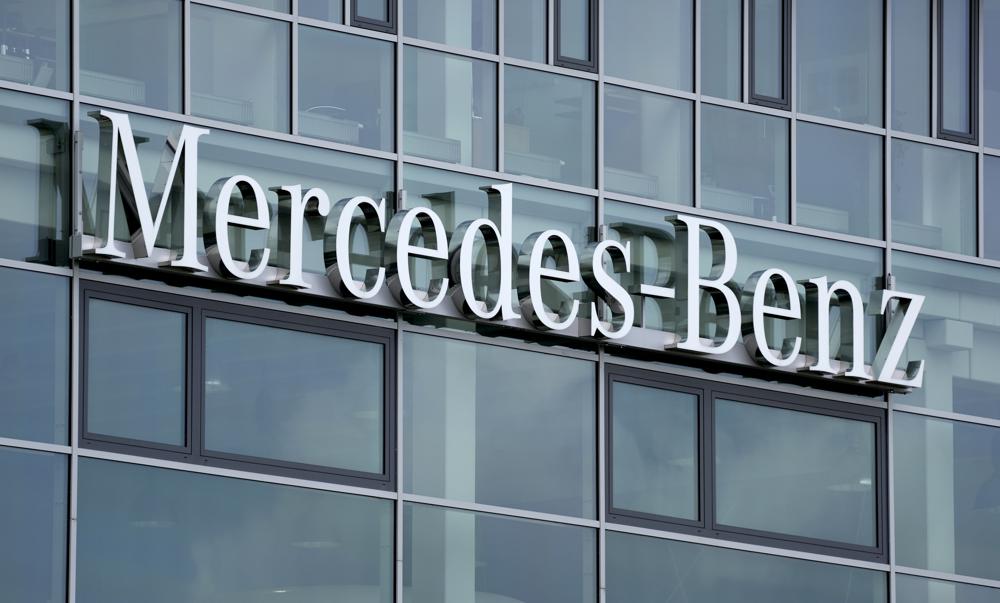
Mercedes-Benz has opened a new electric vehicle battery factory near Tuscaloosa, Alabama, that will create up to 600 new jobs. The German automaker said Tuesday that the plant in Bibb County opened a few months before Mercedes plans to start making two all-electric SUVs at a large assembly plant in nearby Tuscaloosa. The new plant will supply batteries for the EQS and EQE SUVs, which will be built for sale in the U.S. and for exports, the company said in a statement. Mercedes said it spent about $1 billion on the battery plant and to upgrade the assembly line in Tuscaloosa to make electric vehicles. The Alabama battery plant will make lithium-ion batteries with an advanced chemistry that contains nickel, cobalt, and manganese, Mercedes said. It is one of six battery factories that the company plans, including two in Germany, one each in China and Thailand, and one in Poland. Mercedes plans to build EVs at seven plants on three continents. Mercedes already employs about 4,500 people at the Tuscaloosa assembly plant, which made about 260,000 SUVs last year. The plant can build internal combustion engine vehicles on the same line as electric vehicles, Mercedes said. The automaker says it will go fully electric by the end of the decade, depending on market conditions. The company plans to build eight battery cell plants worldwide with partners. “Mercedes-Benz will expand its partnerships with the world’s leading battery technology companies,” the statement said. The company said it is joining with Envision AESC to supply the Alabama battery factory with modules from a new U.S. plant. Module supplies will start arriving in the middle of the decade, Mercedes said. The Alabama plant is currently getting battery cells from Mercedes’ existing network of suppliers. Alabama Gov. Kay Ivey and other dignitaries attended the opening ceremony Tuesday.
Alabama-built vehicles help Mercedes speed ahead of BMW in U.S. luxury car sales
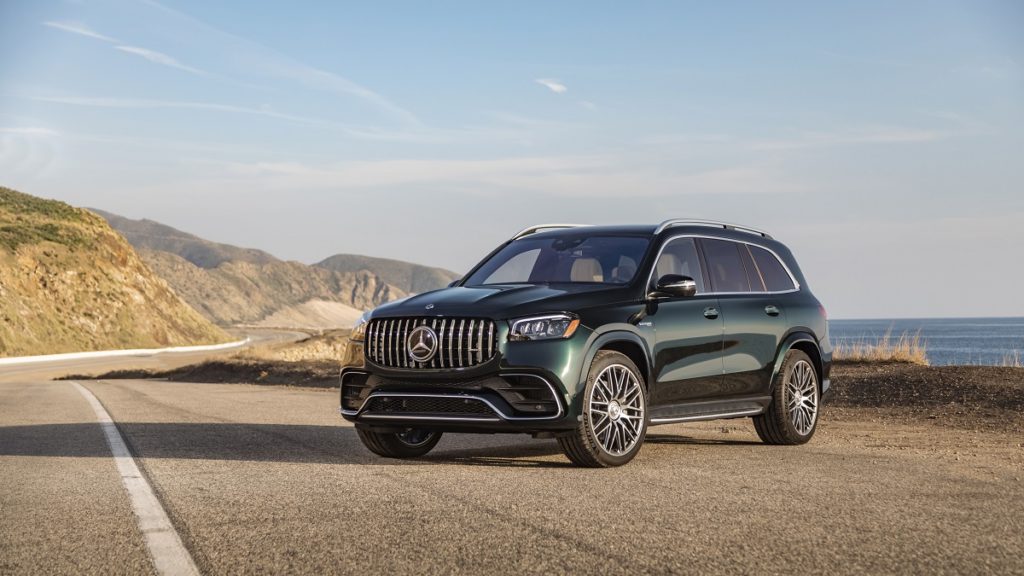
The GLE and GLS are produced at the Mercedes-Benz U.S. International plant near Tuscaloosa.
Honda and Toyota reopen their Alabama plants with COVID-19 protection measures

Both plants had been closed since late March due to the COVID-19 pandemic.
Report: 2017 projects generate nearly 15,500 new jobs across Alabama
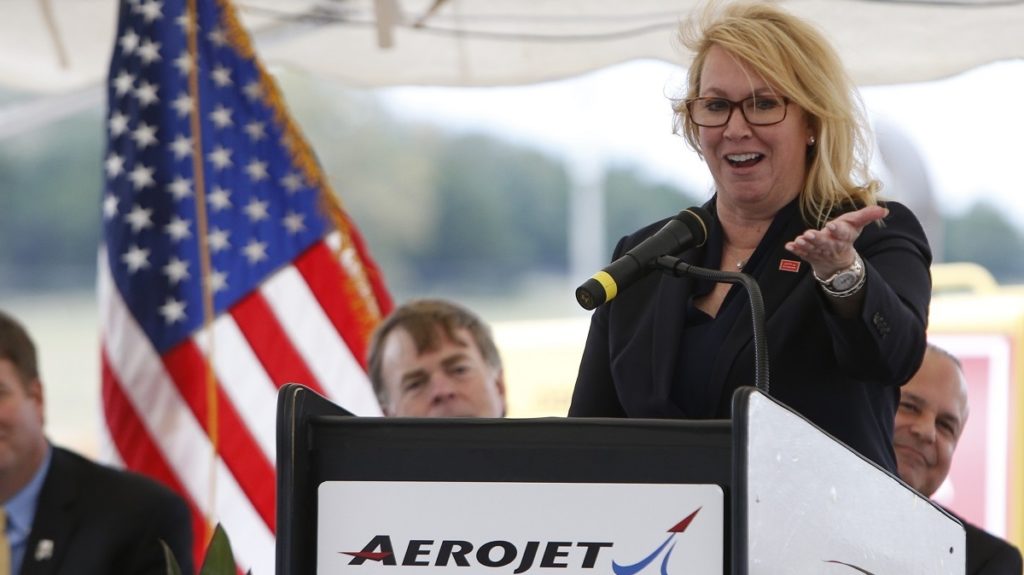
Companies planning new facilities or expanding existing operations in Alabama announced nearly 15,500 new jobs and more than $4.4 billion in capital investment during 2017, according to a comprehensive report detailing economic development activity in the state last year. The 2017 New & Expanding Industry Report, released by Gov. Kay Ivey and the Alabama Department of Commerce, shows that key industrial sectors such as automotive and aerospace continue to expand. The important forest product and food production sectors also turned in strong performances last year. “I’m committed to creating high-paying jobs that transform the lives of Alabamians and bring new levels of prosperity to communities across the state,” Ivey said. “For Alabama to continue our recent success of job creation, it’s vitally important that we continue to pursue 21st-century jobs for our people. “Momentum is on our side, and I will continue leading the charge in helping every Alabama family achieve their goals,” she said. Key findings in the report include: Alabama’s economic development efforts resulted in securing 317 projects last year, resulting in 15,465 new and future jobs and $4.41 billion in new capital investment. Those totals exceed 2016’s figures – 14,707 jobs and $4.2 billion in investment. Jefferson led all Alabama counties in job growth from 2017 projects, with 2,200 anticipated jobs. Rural Dallas County led in new capital investment in 2017, with $556.2 million. Alabama attracted foreign direct investment from 16 countries, generating 3,391 new and future jobs, as well as more than $1.2 billion in investment. South Korea was the top source for jobs, with 1,216 anticipated positions. The momentum from a solid 2017 in economic development in Alabama has carried over into this year. Already in 2018, the state has landed major projects including a Toyota-Mazda auto assembly plant that will create 4,000 jobs in Huntsville and a Kimber firearms factory that will create 366 jobs in Troy. “We’re going to be energetically pursuing more of these projects because we want to bring jobs home to Alabama,” Ivey said. Goal: job creation Greg Canfield, secretary of the Alabama Department of Commerce, said the 2017 results outlined in the report align with the priorities of Accelerate Alabama 2.0, the state’s updated economic development growth plan. “Our economic development strategy has centered on developing longstanding relationships with high-caliber companies from the U.S. and around the world so that they will put down roots in the state and grow through expansions over many years,” Canfield said. “Our primary goal is to create top-quality jobs and meaningful opportunities for people all across the state.” The largest 2017 project, based on jobs created, was Aerojet Rocketdyne’s expansion in Huntsville. The California-based company is building a new manufacturing facility for its AR1 rocket engine and relocating many functions related to its defense business to Alabama, creating a total of 800 jobs. Other large job-creating projects included: Autocar announced plans to open an assembly facility for heavy-duty work trucks in Birmingham, creating 746 jobs. Walmart announced that it will open an import distribution center in Mobile with 550 jobs. Mercedes-Benz broke ground on a Global Logistics Center in rural Bibb County that will be staffed with 502 workers. (The automaker also announced plans for a battery plant, but the dimensions of that project are not yet final.) John Soules Foods plans to create 500 jobs in Chambers County as it expands its production capacity. Project breakdown A detailed look at the 2017 New & Expanding Industry Report shows that a majority of the projects involved expansions of existing facilities in Alabama. There were 256 expansion projects last year, involving $2.7 billion in capital investment and 8,367 anticipated jobs. The 61 projects involving new facilities are expected to create almost as many jobs – 7,098, according to the report. New capital investment tied to these projects approached $1.7 billion. Following Jefferson, the top counties for project-related job creation in 2017 were: Madison: 1,828 Montgomery: 1,056 Mobile: 797 Chambers: 585 Counties ranking behind Dallas for the most new investment were: Morgan: $516.3 million Madison: $492.2 million Mobile: $339.1 million Bibb: $281.5 million Republished with the permission of the Alabama Newscenter.
2 Alabama projects claim national magazine’s top 2017 investment awards
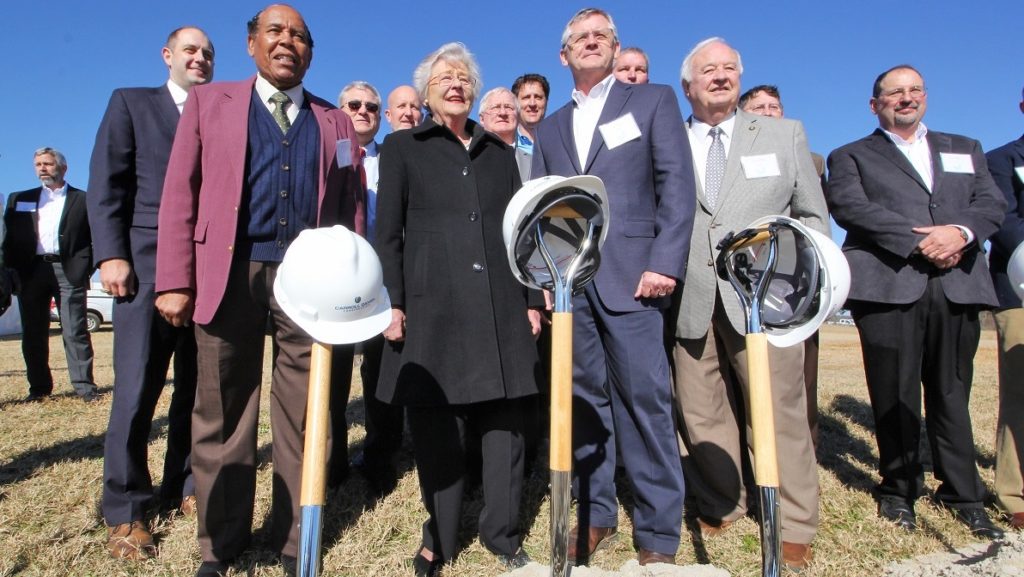
Trade & Industry Development, a national trade publication, selected two 2017 Alabama economic development projects for its elite investment awards, reflecting the powerful impact these collaborative recruitment efforts will have on their communities and the state. The magazine’s editors evaluated several hundred announcements from across the U.S. before selecting the 30 winners of its 2017 Corporate Investment & Community Impact Awards. “These major investments provide a clear snapshot of where and in which industries growth is occurring today,” Publisher Scott D. Swoger said. “Each of the investments to be made by Trade & Industry Development’s 13th Annual CiCi Awards recipients will be transformational for the communities in which the projects will be located.” The Alabama projects honored are: Wayne Farms’ $105 million expansion in Coffee County, which received the Community Impact Award. Mercedes-Benz’s $1 billion expansion of its Alabama operations, which received the Corporate Investment Award. “These honors underscore the teamwork that exemplifies the Alabama economic development team and demonstrate how cooperation benefits communities across the state,” said Greg Canfield, secretary of the Alabama Department of Commerce. “These projects lay a solid foundation for growth in key economic sectors and will create good jobs with staying power.” Officials break ground on the Wayne Farms expansion in Coffee County, which was named one of the top 30 economic development projects of 2017 by the national publication Trade & Industry Development. (contributed) Strong partnerships Jonathan Tullos, executive director of the Wiregrass Economic Development Corp. in Enterprise, said the Wayne Farms investment is the largest economic development project in the history of Coffee County. “The impact of this project will go beyond the 400 direct jobs that Wayne Farms is creating,” he said. “It will impact local farmers, retail and housing for years to come. We look for this project to be a catalyst to create more opportunities for investment in our region, particularly in the agricultural sector.” Tullos added that the project was made possible through the partnerships the Wiregrass EDC has formed with local elected officials and utilities, including PowerSouth Energy and Southeast Gas, and state allies such as Gov. Kay Ivey and the Alabama Department of Commerce. Mercedes-Benz, which has been producing autos in Alabama for 20 years, is opening a global logistics center in nearby Bibb County as part of an expansion announced in 2017. (Mercedes-Benz) Powering growth Mercedes’ two-pronged expansion in Alabama will create 600 jobs through the addition of a battery plant to support electric vehicle production and a global logistics center and parts distribution hub. “Mercedes has been a powerful engine for growth in Alabama for over two decades, and the company’s decision to produce electric vehicles and to expand its global logistics operation in the state reinforces the company’s vital role in Alabama’s future,” Canfield said. “This initiative, which will bring cutting-edge technology and new jobs to the state, is another great chapter in our relationship with the automaker.” Brian Hilson, president and CEO of the Birmingham Business Alliance, said the logistics center will provide a major economic boost to Bibb County, where it will be built. “Mercedes-Benz’s expansion into the Birmingham region is a significant economic development project for the people of Bibb County and the Birmingham region,” he said. “Mercedes and its suppliers have a significant impact on all the communities they are located in. This expansion not only puts Mercedes closer to an accessible workforce, but it invigorates one of Alabama’s most rural counties.” Read about all the CiCi Corporate Investment winners. Trade & Industry Development magazine is published by Due North Media. This story originally appeared on the Alabama Department of Commerce’s Made in Alabama website. Republished with permission from the Alabama NewsCenter.
MöllerTech opens $46.3 million Alabama plant, ramps up hiring
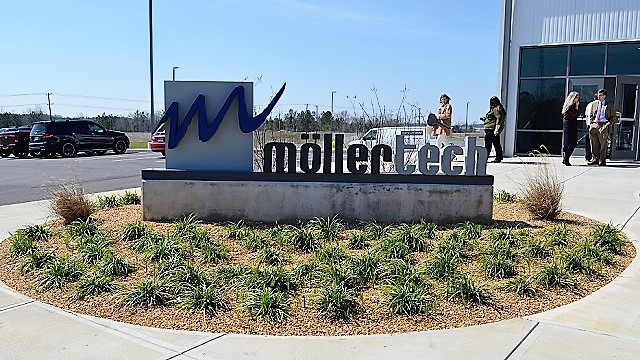
MöllerTech officially opened its $46.3 million auto supplier plant in Bibb County yesterday morning as the Mercedes-Benz supplier prepares to produce parts for the next generation of vehicles at the German automaker’s Alabama plant. The plant already has equipment installed and 50 workers in place in the facility in the Scott G. Davis Industrial Park. “About 18 months ago we had the groundbreaking. So, here we are in this wonderful facility and with 50 people employed already,” said Steve Jordan, MöllerTech North American CEO. “A lot of these individuals have already grown within the organization, so I’m looking forward to employing more. I think we will be up to 220 at the end of 2019.” Those workers will produce interior parts to go in the vehicles that Mercedes will build in neighboring Tuscaloosa County after the automaker completes a $1 billion expansion later this year. “It’s a challenging time for us as we get ready for the next generation of cars,” said Jason Hoff, CEO of Mercedes-Benz U.S. International. “We have a lot of work to do on our own facility. We’re completing our $1 billion investment that we announced a couple of years ago. So, you know, it’s getting into the crunch time.” Economic developers are feeling that “crunch time” as they seek to provide industrial sites and a workforce ready to take jobs as the automotive industry continues to grow in the state. “We expect to continue to see growth in the automotive sector,” Alabama Commerce Secretary Greg Canfield said. “With the density of OEMs (original equipment manufacturers) locating in the state of Alabama, we’re going to see more and more interest from the supply chain looking at Alabama because, hey, Alabama is the now the center and the heart of the Southern automotive sector.” Within the existing automotive industry in the state, Alabama has to be ready to shift as the industry shifts into areas like electric vehicles and other advances. “The supplier market has to be responsive to (change) as well and as that happens in economic development we have to be prepared with sites and facilities,” said Brian Hilson, CEO of the Birmingham Business Alliance. “We also have to be prepared from a workforce standpoint because we will have new technologies and workforce requirements that will go with those that we will have to be ready for.” Canfield said Alabama is already working closely with and their suppliers to prepare for change years in advance. “The interesting thing that we find about the automotive sector that really makes it a lot of fun to work with is they’re thinking so far in advance,” he said. “So, when we engage with the automotive OEMs and tier ones and other suppliers down the line – whether they’re tier two or tier three – we’re talking about impacts that are going to occur three to five years in the future. That really helps us get a better understanding of the direction and the flow of the automotive sector in Alabama.” Jordan said even before the new MöllerTech plant produces its first part for Mercedes, his company is already anticipating getting a contract for future work. “Our company is 290 years old. We’ve just opened this building and we plan to be here for many, many years to come,” he said. “So, with this next generation of Mercedes vehicles we currently have, we want future ones as well. We hope to have a great future and partnership with Mercedes.” Republished with permission from the Alabama NewsCenter.
Alabama third in nation in auto exports
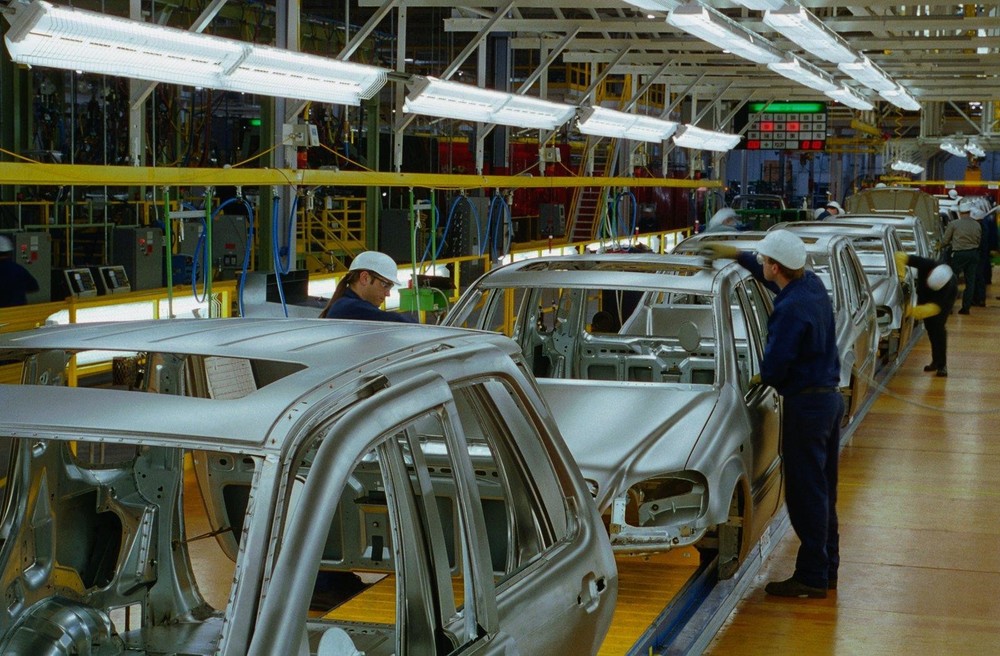
According to a survey conducted by the Alabama Department of Commerce; Alabama is the third in the nation in auto exports. Mercedes-Benz is the state’s top exporter, responsible for $5 billion in shipments every year. Alabama exported a total of $7.75 billion in automobiles in 2017, coming up short of only Michigan and South Carolina. “Customers around the globe continue to seek the high-quality, high-performance products of Alabama’s auto industry, and our skilled auto workers continue to deliver what they’re looking for,” said Greg Canfield secretary of the Alabama Department of Commerce, in a news release. “The success of Alabama exports, and particularly automotive exports, helps create jobs and transform communities here at home.” Alabama-made vehicles were shipped to six continents in 2017. China was the leading market, accepting more than $2.2 billion in Alabama-built vehicles exports, a 10 percent increase from last year. Hilda Lockhart, director of Commerce’s Office of International Trade, said China is a good growth market for vehicles. “Their GDP continues to grow, and the middle class income level is increasing – thus buying cars,” Lockhart told the Associated Press. “As for Africa, this market continues to have a growing population and a lot of the people are moving to the cities. The main transportation is vehicles via the roads,” said Lockhart. “If the trend continues, Africa is an emerging market and is home to some of the top fastest-growing economies in the world.” Other top importers of Alabama-built vehicles were: Germany, Canada, Mexico, Belgium, South Korea, Australia, United Arab Emirates, India, South Africa, Chile and Saudi Arabia. Alabama’s Honda Manufacturing plant exports 8 to 10 percent of its annual output of SUVs, minivans and pickups. Exports of Honda products are limited because the plant only produces left-hand-drive vehicles, and some of their models are too large for countries with narrow roads and high fuel costs. Honda’s Alabama products were exported mostly to Canada, Mexico, Central and South America, South Korea and the Middle East. Hyundai’s Alabama plant exported nearly 5 percent of its SUVs and sedans last year. Most vehicles were exported to Canada, while some went to Puerto Rico and El Salvador.
Alabama plant figures prominently in Mercedes-Benz global electric vehicle initiative
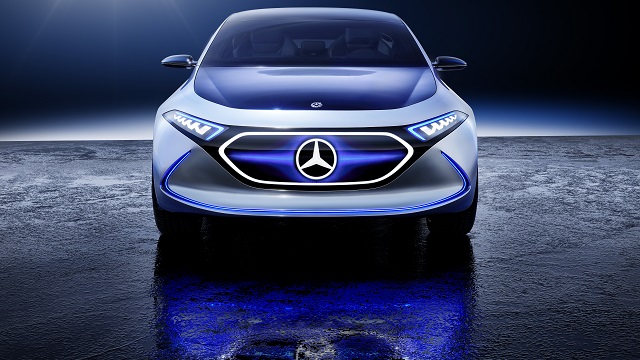
Mercedes-Benz said it will have an electric version of all vehicles by 2022 as part of a global initiative that has its Alabama plant playing a pivotal role. “Our electric vehicles will be built in six plants on three continents,” said Markus Schäfer, member of the Divisional Board of Mercedes-Benz Cars, Production and Supply Chain. “We address every market segment: from the Smart for two to the large SUV.” Mercedes-Benz U.S. International, the company’s Alabama operations in Tuscaloosa County, is its only U.S. plant and will produce electric versions of the vehicles on the assembly line there. MBUSI makes the C-Class sedan for the North American market and the GLS and GLE SUVs and the GLE Coupe for the U.S. and global markets. Jason Hoff, CEO of MBUSI, said the Alabama plant is gearing up to make electric vehicles. Mercedes said the Hambach, Germany, plant is producing the Smart fortwo Coupe and Cabriolet, which are the first cars in the next generation of EVs. The Mercedes plant in Bremen, Germany, will produce the EQC, an all-electric SUV, starting next year. That will be followed by other vehicles in the EQ line that will be built at BBAC, a joint venture between Mercedes parent company Daimler and BAIC in China. Mercedes plants in Rastatt and Sindelfingen, Germany, will join the Tuscaloosa plant as the next three to add EV production.“Building an electric car, obviously, is going to bring some new challenges and we’re going to build electric cars right alongside our regular combustion engine cars and that’s going to be an interesting challenge – how we integrate different technologies, different production processes into our traditional processes,” Hoff told Alabama NewsCenter during a Facebook Live broadcast from MBUSI last month. “But we’re excited about it, we’re already getting the work started. We’ve got the first few people working on it and it will just develop from there.” In September, Mercedes used its 20th anniversary of producing vehicles in Alabama to announce a $1 billion expansion that will produce batteries, hybrid and electric vehicles at the plant. “Mercedes’ decision to build a battery factory and launch electric vehicle production in Alabama positions the state as a leader in a disruptive technology that is poised to dramatically change the direction of the auto industry,” said Greg Canfield, secretary of the Alabama Department of Commerce. “This sends a powerful message that automakers operating in Alabama will be involved in the industry’s most advanced technologies and that the state is ready for what’s coming next.” Mercedes said the battery initiative goes hand-in-hand with the vehicle production. “The battery is the key component of e-mobility,” Schäfer said. “As batteries are the heart of our electric vehicles we put a great emphasis on building them in our own factories. With our global battery network, we are in an excellent position: As we are close to our vehicle plants we can ensure the optimal supply of production. In case of a short-term high demand in another part of the world, our battery factories are also well prepared for export.” Mercedes is investing more than $12.3 billion to expand its electrical fleet around the world, along with an additional $1.2 billion in a global battery production network. “The electric initiative of Mercedes-Benz Cars is right on track,” Schäfer said. “Our global production network is ready for e-mobility. We are electrifying the future.” Having its Alabama plant play a pivotal role speaks volumes, officials said. “Mercedes-Benz has called its global electric initiative an ‘important strategic course’ for the future, so its decision to build electric vehicles in Tuscaloosa makes an incredibly strong statement about how much confidence the company has in Alabama and its workforce,” said Steve Sewell, executive vice president of the Economic Development Partnership of Alabama. “Alabama has earned a place in the Mercedes global manufacturing network as an important location where the company can carry out bold and ambitious plans.” Hoff said it’s fitting that the plant that started SUV production for Mercedes more than two decades ago is taking the lead in the future of SUV production for the automaker. “We’re the home of the SUVs and that’s really what we’re known for and what we stand by,” he said. “With the expansion of now an electrical SUV in the future, we feel that kind of cements our place with being the home of the SUVs.” Republished with permission from the Alabama NewsCenter.
Alabama auto sector primed for growth with $1 billion in new investment
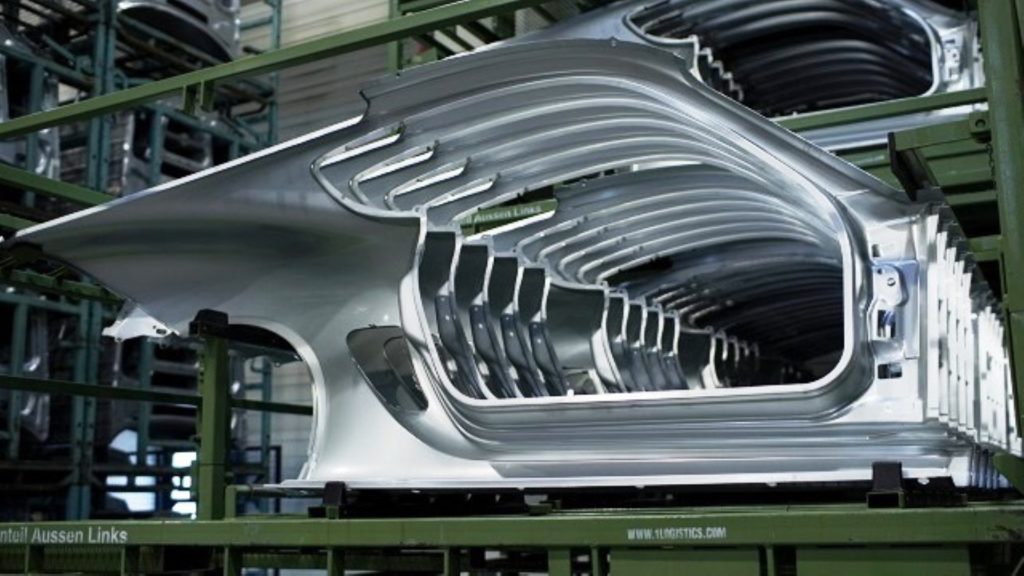
Alabama’s auto industry continues to thrive, racking up new jobs and investments in communities across the state. Last year, there were at least 68 auto projects, for an estimated total of 3,848 jobs and $907.1 million in new capital investment, according to an analysis of the 2016 New & Expanding Industry Report. New projects announced this year push that total past $1 billion and add hundreds of more jobs. The projects included new companies and expanding operations, which manufacture everything from intricate vehicle parts and major component systems to entire automobiles. “Our deep roots in the auto industry keep growing deeper,” said Greg Canfield, secretary of the Alabama Department of Commerce. “Last year alone, there were new or expanding auto companies in 26 Alabama counties, showing the vast reach of auto production in Alabama.” The foundation of the state industry is made up of three auto assembly plants operated by Mercedes-Benz, Honda and Hyundai, as well as a major engine plant for Toyota. The 2016 projects included Hyundai’s $52 million investment in upgrades to its Montgomery plant to bring the Santa Fe SUV back to its assembly lines. Another was the 535-job expansion of Tuscaloosa County’s Lear Operation Corp., which supplies seating systems to the Mercedes factory in Vance. Among the other highlights were MöllerTech USA LLC’s new $46.3 million, 222-job facility in Bibb County and a $14.5 million, 200-job expansion for Eissmann Automotive North America Inc. in St. Clair County. Both manufacture parts for car interiors. Elsewhere, Spain’s Truck & Wheel Group is building its first U.S. parts plant in Tuscaloosa County, where it’s investing $30 million in an operation that will employ 70 people. In Lee County, The Berghoff Group announced a $30 million, 100-job precision machining facility. Hyundai invested $52 million in its Alabama assembly plant to launch production of the Santa Fe Sport SUV. (Contributed) Promising outlook As Alabama’s auto industry marks a key milestone – two decades of vehicle production – the sector’s growth prospects continue to look strong in 2017. Mercedes, for example, recently held a supplier forum at its plant to discuss its next-generation SUVs. Officials for the automaker underlined the current and future importance of SUV production in Alabama during personal discussions with partners including Lear, SMP and Kamtek. They also emphasized the successful partnership that has grown over the years since the first Mercedes M-Class rolled down the automaker’s Alabama assembly line on Feb. 14, 1997. “The increasing requirements due to a continual rise in production numbers for the SUV segment was a massive challenge for all suppliers, which was mastered very well,” said Dr. Klaus Zehender, member of the divisional board of Mercedes-Benz Cars, Procurement and Supplier Quality. Jason Hoff, president and CEO of the Alabama operations, Mercedes-Benz US International Inc., echoed those comments. “These are exciting times for our Alabama facility as we prepare to take on this new challenge to build the next generation of SUVs,” he said. “Mercedes-Benz became the first auto manufacturing plant to build vehicles in Alabama more than 20 years ago and, since that time, other automakers and suppliers have joined us. “Our suppliers have found – just as we have – that Alabama is a great place to do business,” Hoff added. Commerce Secretary Greg Canfield, left, presents MollerTech leaders with an Alabama seal at a groundbreaking ceremony last year. The company is one of several auto suppliers that announced projects in Alabama during 2016. (Contributed) 2017 momentum Meanwhile, 2017 has brought new auto sector projects to Alabama, setting the stage for more growth across the state. Among them: Auto supplier Hanwha Advanced Materials America LLC plans to invest $20 million to upgrade its manufacturing facility in Opelika, adding 100 jobs over the next three years. Honda announced plans to invest $85 million at its Lincoln plant in the first phase of a multi-faceted project to improve manufacturing flexibility, strengthen logistic efficiency for future models and prepare for future technologies. Spain-based auto supplier Grupo Antolin announced plans to invest nearly $10.4 million to establish a manufacturing facility in Jefferson County that will employ 150 people by 2020. Republished with permission of Alabama NewsCenter.
Alabama foreign investment tops $1.5 billion in 2016, creating 3,250 jobs
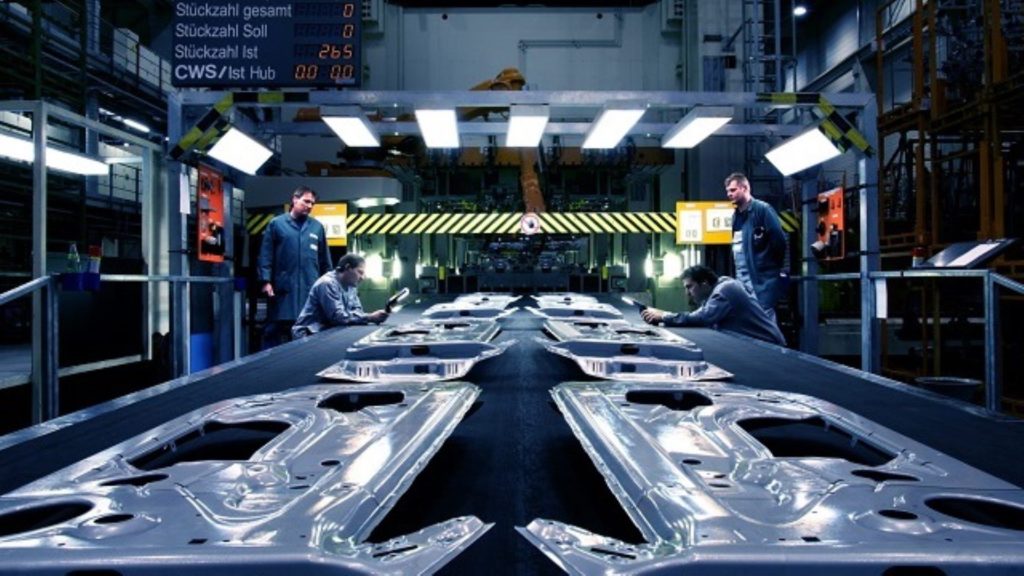
Businesses based in countries around the globe continue to find a welcoming home in Alabama, as the state’s foreign direct investment (FDI) reached $1.57 billion last year, driving job growth in several industries. Expansions accounted for the vast majority of the 79 FDI projects announced by companies in 17 different countries. But there were notable new projects, too. A total of 3,254 new jobs were tied to the overall investment, according to the 2016 New and Expanding Industry Report, which was released last month by Gov. Kay Ivey and the Alabama Department of Commerce. Overall, the state landed nearly $4.2 billion in capital investment and more than 14,700 new jobs. “The success of the companies operating in Alabama is a story that’s being told around the world,” said Greg Canfield, secretary of the Alabama Department of Commerce. “Here at home, that’s meant significant new investments and lucrative jobs for communities across the state.” FDI has represented a powerful growth engine for Alabama, with foreign companies announcing $7 billion in new capital investment in the state since the beginning of 2013, according to Commerce data. Top FDI sources Austria led the way in FDI during 2016, with a total investment of $666.1 million. That was due mostly to two major expansions of existing companies in the state. Kronospan, a leading manufacturer of wood-based panel products, announced plans to invest $362 million in its Calhoun County operations and add 160 jobs. Another Austrian firm, Lenzing AG, said it would spend $293 million to expand production of an eco-friendly, botanic fiber at its Mobile County plant. The project is also creating 163 jobs. A third Austrian firm, auto supplier voestalpine, announced plans for an $11 million manufacturing facility in Jefferson County with 42 jobs. Other countries that were in the top five for FDI were: Germany — $213.5 million South Korea — $155 million Canada — $145 million Spain — $131.7 million In terms of new jobs, German companies announced the largest overall total for Alabama last year, with 1,187. Those projects included a new plant in Bibb County for automotive supplier MollerTech USA LLC, which plans a $46.3 million investment and 222 jobs. There was also an expansion in St. Clair County for Eissmann Automotive North America Inc., an automotive supplier that is adding $14.5 million and 200 jobs. Other top countries for total jobs were: Canada — 527 jobs Austria — 365 jobs South Korea — 347 jobs France — 333 jobs FDI and jobs also came from companies in other countries, including Australia, Belgium, Finland, Israel, Italy, Japan, Mexico, Switzerland, Taiwan, Thailand and the United Kingdom. Canfield recently led a trade mission to Canada, the state’s top international trade partner. Auto driver Auto industry projects dominated the entire list of FDI activity. Another major expansion in this sector was in Jefferson County, where Spain’s Gestamp announced plans to invest $131 million in its metal stamping operations. Alabama Commerce Secretary Greg Canfield, left, presents MollerTech leaders with an Alabama seal at a groundbreaking ceremony. (Made in Alabama) In addition, other suppliers for automakers Mercedes-Benz, Honda, Hyundai and Toyota –- and in some cases, the manufacturers themselves –- took steps to expand their Alabama facilities. Foreign direct investment plays a key role in the U.S. economy, according to SelectUSA, which works to facilitate job-creating business investment in the United States. About 6.4 million U.S. workers were employed by U.S. affiliates of majority foreign-owned firms in 2014, the latest data available. In addition, these companies account for $57 billion in research-and-development spending, and their total contribution to U.S. exports is estimated at $425 billion. In Alabama alone, 92,700 jobs are directly supported by majority foreign-owned affiliates, SelectUSA figures show. From July 2007 to June 2016, a total of 221 greenfield, or new, FDI projects were announced in the state. Nearly a quarter of them were by companies based in Germany, which is no surprise, since that’s the corporate home of Mercedes. Japan, home to Honda and Toyota, and South Korea, home to Hyundai, trailed close behind at 18 percent and 17 percent, respectively. Republished with permission of Alabama NewsCenter.
Alabama-Germany partnership shows new strength after decades of growth
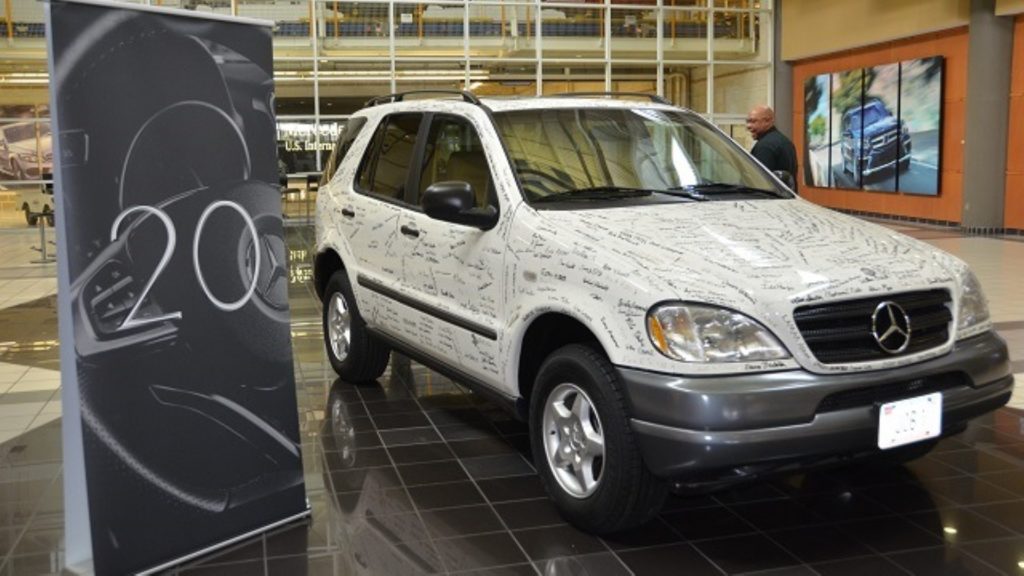
German companies have invested $8.4 billion and created nearly 15,500 jobs in Alabama over the past two decades, and the prosperous relationship is poised to grow even stronger. State exports to the European nation are on the rise, and at the same time, Germany’s foreign direct investment in Alabama remains strong. There are also new and ongoing efforts to develop more business, cultural, educational and social ties between individuals and organizations with a vested interest in each side. Germany is one of Alabama’s most important economic allies, said Greg Canfield, secretary of the Alabama Department of Commerce. “Certainly Mercedes-Benz and its network of suppliers have played a major role in the creation of Alabama’s auto industry, which has, in turn, transformed the state’s economy and the lives of many residents,” Canfield said. “But there are also significant German investments here in industries including aerospace, chemicals, steel processing and more,” he said. “Like the automotive firms, these companies have found highly skilled workers in Alabama who are helping them achieve their goals, and we look forward to seeing even more growth in the future.” Long-standing ties More than 70 German companies operate in the state, according to the AlabamaGermany Partnership, a nonprofit founded almost 20 years ago following the startup of the Mercedes auto assembly plant in Tuscaloosa County. And while many people think the luxury automaker was the state’s first German company, that distinction actually belongs to Evonik Industries, a chemical manufacturer that has been operating in Mobile for more than 40 years, said Tine Hoffmeister, AGP executive director. But Alabama’s ties to Germany go back much further than that, she said. The city of Cullman was founded in the late 1800s by Col. Johann Gottfried Cullmann, a German refugee who was instrumental in bringing many more German immigrants to the region. And in Huntsville, it was a team of Germans, led by Wernher von Braun, who pioneered U.S. rocket technology in the 1950s and 1960s and helped establish the city’s space industry. Mercedes, however, does play a huge role when it comes to the profile of German investment in the state, Hoffmeister said. “That’s because of their brand recognition,” she said. “Unlike some companies who make things people may not be familiar with, a car is something you can see and you can touch, so it’s had a big impact.” It’s also a special time for Mercedes, which this year is marking its 20th anniversary of auto production in Alabama. The first customer-ready M-Class SUVs began rolling off the assembly line in Tuscaloosa County on Feb. 14, 1997. New initiatives The AlabamaGermany Partnership hosts a variety of events to bring together Alabama residents, German citizens and their respective businesses, including its popular annual dinner held last month at Talladega’s International Motorsports Hall of Fame. New and expanding German companies in Alabama were recognized. Hoffmeister said one of AGP’s newest initiatives is a young professionals group. “With the young professionals group, we’re trying to get a new generation involved in the mission of the AlabamaGermany Partnership,” she said. “Some are American, and some are German. We do German company tours and host networking events. We hope they will be helpful in connecting with young people who are still in school and deciding what to do with their lives. “There are so many opportunities with German companies that a lot of people don’t realize.” Along those lines, another new initiative at AGP is an effort to document all of the available internships, apprenticeships and co-op education programs at German companies in Alabama to better connect students with those opportunities. Economic partners Germany consistently ranks high among Alabama’s trading partners and countries responsible for the most foreign direct investment in the state.The latest estimated FDI data shows German firms created 1,140 jobs in the state last year, the most of any other country, while their related combined investment of $177 million was the second highest. Meanwhile, state exports to Germany reached almost $3.2 billion in 2016, a 29 percent increase from the previous year. The increase pushed Germany up the list of top destinations for Alabama-made products, from No. 4 to No. 3. Not surprisingly, vehicles were the top Alabama export to Germany, rising 36 percent to $2.4 billion. But other product categories also showed strength, including aerospace products and parts, primary metal manufacturing and plastics and rubber products, said Hilda Lockhart, director of the Alabama Department of Commerce’s Office of International Trade. “The German government has deemed aerospace as a priority and it provides a very strong core of the industrial sector,” she said. “U.S. aircraft parts are readily accepted in Europe because of the quality – while some countries are not as good quality. Out of all the top markets for aerospace Germany ranked fourth in the world.” In addition to Mercedes and its suppliers, other German companies that call Alabama home include Diehl Aerospace Inc., aircraft product support and maintenance; Aviagen, hatchery and poultry feed manufacturing; Kloeckner Metals Corp., steel processing; Jenoptik Optical Systems, micro optics; and TÜV Rheinland Industrial Solutions, testing laboratories. AGP has a German Business Committee made up of German company leaders who meet about every other month, Hoffmeister said. The group has been helpful for new German companies, as officials share their experiences about building a business in the state. There are also culture workshops, typically held once a year, to educate both Germans and Americans on cultural norms for business dealings. And in addition to the big annual dinner, AGP hosts small dinners around the state to help bridge cultural divides. “We have small dinners where we have Germans and Americans coming together and sharing a meal,” Hoffmeister said. “In my view, I think that’s one of the best ways of starting a relationship with someone else, by sharing a meal.” This story originally appeared on the Alabama Department of Commerce’s Made in Alabama website. Republished with permission of Alabama NewsCenter.
Mercedes hastens shift to electric cars as combustion era fades
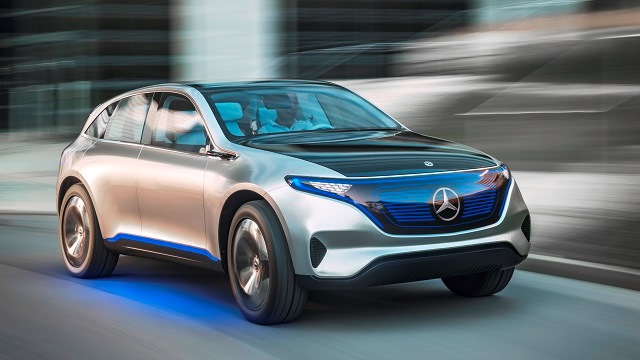
Mercedes-Benz is accelerating its rollout of battery-powered autos in a race to meet tighter emissions rules as European buyers turn away from fuel-efficient diesel cars. In a $10.8 billion project, the world’s largest luxury-carmaker intends to release 10 new electric vehicles by 2022, three years earlier than a target announced at the Paris auto show in September. The expedited time frame reflects the urgency facing manufacturers as they brace for a shift away from traditional automotive technologies. Combustion engines would continue to be refined for a “transitional period,” Mercedes parent Daimler AG Chairman Manfred Bischoff said Wednesday. “We want to shape the profound transformation of the automotive industry from the forefront,” Bischoff said at the company’s annual shareholder meeting in Berlin. “Further fundamental changes will be required for Daimler to remain successful,” as the industry adjusts to cars with electric motors and capable of self-driving. The faster pace comes as the industry battles a backlash against diesel cars stemming from Volkswagen AG’s cheating scandal. Daimler has been embroiled with German prosecutors investigating the Stuttgart-based automaker’s employees over diesel-manipulation allegations. The technology is key for meeting increasingly stringent rules for lower carbon-dioxide emissions. Daimler is “naturally” cooperating with authorities on the diesel probe, CEO Dieter Zetsche said last week in his first public comments on the matter since the investigation became public on March 22. He repeated that Germany’s motor authority and transport ministry found no violations in their tests of Daimler vehicles. After achieving steady reductions in CO2 emissions in previous years, Daimler struggled in 2016 with levels in Europe steady at 123 grams per kilometer as buyers favored larger vehicles. In its home region, Daimler needs to reach 100 grams per kilometer by 2021 or face fines. Flat emissions German diesel demand in December fell to the lowest level since September 2010, accounting for 43 percent of total sales, according to the Center for Automotive Research at the University of Duisburg-Essen. Early signs of carmakers shifting focus from combustion engines are showing, Germany’s IG Metall union said after conducting a survey of manufacturers and suppliers in Daimler’s home state of Baden-Wuerttemberg. “Among development teams, especially in diesel, there are signs there’s less to do as electrification is starting to have an impact,” said Roman Zitzelsberger, a union representative on Daimler’s supervisory board. “We found there are fewer follow-up requests and general degree of activity.” Like other automakers trying to prepare for a future of electric self-driving cars, Daimler is focusing investments on future technologies at the expense of short-term profits. The company plans to spend more than $1.7 billion on its global battery production facilities, about half of which will go to a subsidiary in Kamenz, Germany. To bridge the gap toward an era of fully electric vehicles, Daimler is continuing to develop plug-in hybrids. Mercedes already has eight such models for sale, with upcoming versions set to include a new hybrid S-Class sedan with an extended battery range of as much as 31 miles. “It is necessary to do one thing without stopping with the other,” said Zetsche. “That’s why we are strengthening both: the new and the old.” Republished with permission of Alabama NewsCenter.


